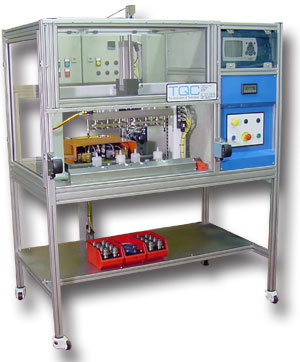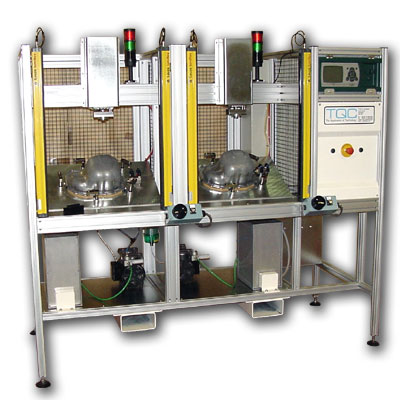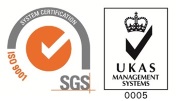Leak Testing: Air Decay Leak Testing Methods
Explore the Leak Testing Section
Leak Testing is used to ensure quality, tested and proven parts are supplied into the market. The use of leak testing equipment eliminates failures in the field.
Explore this section to find out more about the how TQC can help you with your leak testing requirements
- Overview
- Air Decay
- Helium
- Other Test Methods
- Leak Testing Services
- Standard Equipment
- Case Studies
- Automotive Brake Leak and Flow Testing
- Automotive Bedplate Leak Test Machine
- Battery Tray Leak Test Machine
- Chilled Beam Leak Test
- Flexible Leak Test Facility
- Fuel Tank Leak Testing
- Helium Leak Test Bench
- Helium Leak Testing of Automotive Fuel Pipes
- High Pressure Audit Leak Testing System with Datalogging
- High Speed Leak Testing of Pipe Fittings using Air and Helium
- High Speed Leak Testing of Plastic Vial for the Medical Industry
- Leak Test Facility for Water Valves
- Leak Test Cell with Robotic Handling
- Casting Leak Testing of Engine Blocks
- Medical Filter Leak Test Machine
- Medical Showerhead Leak Test Machine
- Plastic Fuel Rail Leak and Burst Test Machine
- Plastic Sump Pipe Leak Test and Assembly
- Small Medical Device Leak Test Machine
- Twin Station Leak Test Machine for Oils Sumps
- V6 Cylinder Head Leak Test Machine
- V6 Engine Leak Test Machine
- V8 Cylinder Head Leak Test Machine
- V8 Engine Block Leak Test Machine
- Valve Block Leak Test Machine
- Vauxhall Leak Test Machine
- Weapon Leak Test Machine
TQC provide air decay leak testing solutions for all types of components to measure air pressure decay.
For these solutions, standard leak testing measurement instruments are incorporated to find a change in air pressure or air flow on the components being tested.
TQC offer test pressures between vacuum and, typically, 16bar (150psig) as standard, with leak testing measurements down to a resolution of 1 atm.mm3/sec. All air decay leak test parameters may be programmed into the instruments supplied as part of the solution, and the resulting data is available for subsequent Statistical Process Control (SPC) analysis.
When comparing leak testing methods, air decay leak testing features are –

Air decay leak testing facility for
medical filters
Overpressure air decay testing (above 0 bar)
- Offers the lowest cost solution
- Simple to understand results data
- Direct value results
- Direct calibration
- Temperature dependent process (alternative test method is vacuum)
- Best used when component under test is stable
Overpressure air decay leak testing is suitable for the following component and environment applications:
- Volumes up to 3 litres
- Stable temperature parts
Read more about our High Pressure (Over 6 bar) and Low pressure (0-6 bar) leak testing machines.

Vacuum leak testing facility for
automotive oil sumps
Vacuum air decay testing (below 0 bar)
- Offers more robust leak testing
- Greater integrity of data
- Limits temperature dependency effects
- Assists sealing loading
- Reduced stabilisation time
- Often a faster throughput
- Indirect leak calculation
- Offers complex fault detection
Vacuum air decay leak testing is suitable for the following component and environment applications:
- Volumes up to 5 litres
- Parts subject to moderate temperature variation
Read more about our Vacuum Air Decay Leak Testing machines.
Flow Testing
For larger leaks and larger internal test volumes one can use a flow testing instrument. These instruments maintain an accurate test pressure whilst recording the gas flow with a flowmeter. Depending upton the test volume this tends to be a technique for checking larger leaks.
To find out more about how we can help you with your air decay leak testing requirements:
We build all machines in-house, applying our 25+ years experience in specialised test and automated handling machines to the engineering projects we undertake. We offer customer support, backup and service call-out for all projects, whatever the size.
Get in touch with us to discuss your requirements and we will be happy to offer our professional advice and visit you at your site.
- Contact us online
- Email us or call us on 0115 950 3561
